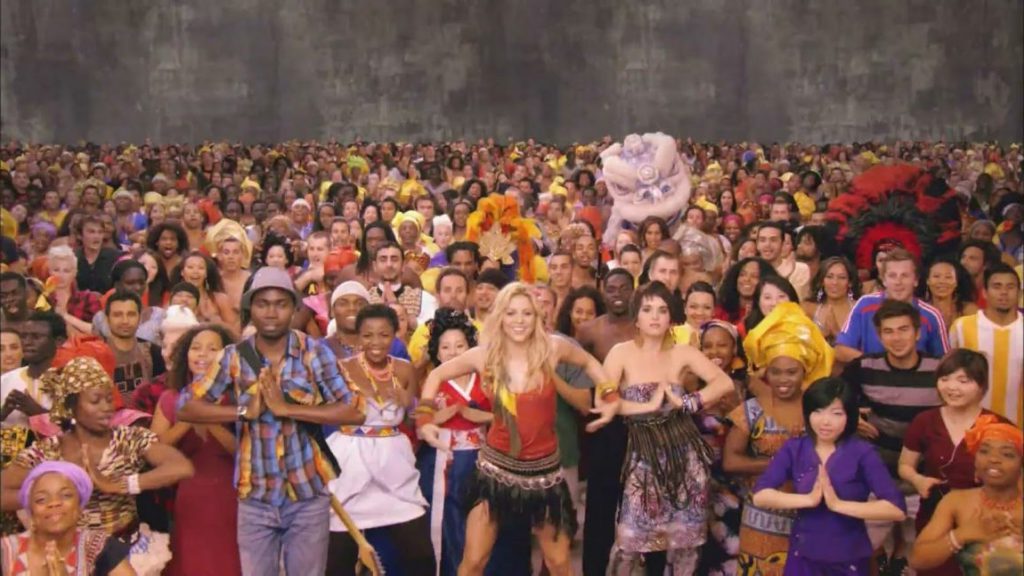Toto meets Mango Groove
FIFA and the South African organizers of the World Cup unveiled the official World Cup tune: It's called "Waka Waka."

A still from the music video for Shakira's "Waka Waka."
The latest offering for the official 2010 World Cup song is “Waka Waka (This Time for Africa).” The song is a collaboration between Colombian (well, global) pop star, Shakira, and Zolani, the lead singer of South African group Freshlyground, a band which reminds me, maybe unfairly, of Mango Groove. Musical publication, NME, quotes Shakira muttering some boilerplate about why she made the song: “The FIFA World Cup is a miracle of global excitement, connecting every country, race, religion and condition around a single passion.” Trite perhaps, but then as we said before it reminds of the only good thing Bono (of U2) ever did.
Shakira record company, Sony Music, is making a lot about the “the African rhythm and identity” of the song in its PR missives: “The song combines Afro-Colombian instrumentation and rhythms with a rousing Soca beat and Southern African guitar. The chorus borrows from a favorite Cameroonian marching chant made popular by the group Golden Voices. “The Official Song is as much awaited by the fans as the Mascot or the Logo. It is part of the identity of the world’s most exciting sport’s event. This song is the personification of the African rhythm and identity and sets the pace for this unique event.”
Update1: there’s now a music video. It is very busy. There’s a lot of people on set.
Update 2: As the American public television network, PBS, reports, 2 months after the song was first released, Shakira and “Waka Waka” have been dogged by “controversy.”
First, South Africans (their country hosts the World Cup) are mad because one of their own musicians weren’t picked and that “… FIFA selected a non-African, Colombian pop star Shakira, to write the song and perform lead vocals.” The criticism seems neither here nor there. This is not the first time a World Cup picks a global star with no national or continental connection to a host nation to do the official song. For France 98, the Puerto Rican singer, Ricky Martin, was given the job. In any case, Freshlyground is on the song. Though if those celebrating Freshlyground’s big break hear the backstory of how they got on, they’d grumble again. “…With three albums and a string of international tours under their belt, Freshlyground’s musicians traveled to New York in February to record their latest record, ‘Radio Africa.’ That’s where they ran into Shakira, who was developing ‘Waka Waka’ in the same studio. Shakira’s song needed a few more African touches, so her producer asked Freshlyground to lend a hand.” She needed “a few more African touches.”
Second, more serious is the charge that Shakira first insisted she came up with the beat and catchy chorus herself and that it was not an already famous Cameroonian tune. Despite all the evidence to the contrary. And that only after the Cameroonian group that performed the original made a stink about the fact that Shakira sampled their work without compensation or recognition, did she only agree to pay up.
Also, then a Dominican singer claimed the chorus is too close to a song he wrote for a girl group in his country.
All this drama, the only thing we want to add is that FIFA should have stayed with K’Naan’s Coco Cola version of his ‘Waving Flag” song or even better the original, which was about war and the experiences of becoming a refugee. But they chose to Waka Waka.



















